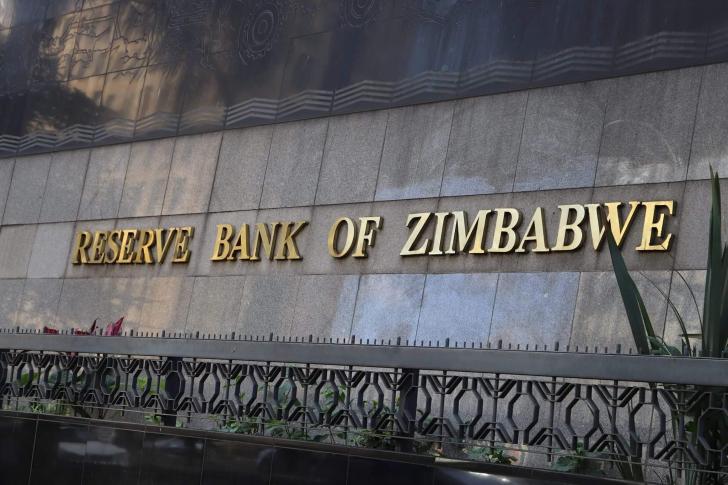News / National
RBZ deputy governor says Zimbabwe banking sector is resilient, stable
13 Dec 2024 at 09:36hrs |
0 Views

Reserve Bank of Zimbabwe (RBZ) Deputy Governor, Innocent Matshe, has highlighted the continued resilience and stability of the country's banking sector, despite facing challenges such as liquidity issues and currency volatility. Speaking at the Zimbabwe Independent's annual 2024 Banks and Banking Survey and Awards held in Harare yesterday, Matshe reported a 13.3% rise in foreign currency deposits for the year ending October 31, 2024, reflecting confidence in the sector.
The banking sector has had to contend with a series of hurdles, including ongoing liquidity challenges and hawkish monetary and fiscal policies aimed at stabilizing the local currency. However, Matshe emphasized that the sector had shown remarkable strength in navigating these tough conditions.
"The condition and performance of the banking sector continue to demonstrate resilience and stability, as reflected by adequate capital levels, satisfactory asset quality metrics, stable liquidity, and sustained profitability," Matshe said. He noted that out of 19 operating banking institutions, only one was facing liquidity difficulties and had been placed under a Corrective Order by the RBZ in April 2024.
Despite the challenges, Matshe reported that confidence in the banking sector had significantly improved, as evidenced by the increase in foreign currency deposits. These deposits grew from approximately US$2.33 billion in October 2023 to US$2.64 billion by the end of October 2024.
Matshe's comments come amidst calls from the International Monetary Fund (IMF) for Zimbabwe to adopt the Basel III global liquidity standards. These regulations focus on enhancing capital quality, improving risk coverage, and implementing a leverage ratio to ensure banks maintain sufficient reserves during times of economic stress.
In response to concerns raised in July 2023 about the capital adequacy of local banks under Basel III, Matshe reassured stakeholders that as of September 30, 2024, all banking institutions in Zimbabwe were adequately capitalized. He revealed that the average capital adequacy and tier-one ratios for the banking sector were 37% and 32.4%, respectively, indicating that the sector had met the required thresholds.
Matshe also noted that credit risk remained low, with the non-performing loans to total loans ratio standing at 3.2% as of the end of September 2024. Liquidity levels remained strong, with an average prudential liquidity ratio of 57.54%, well above the minimum requirement of 30%.
"All banking institutions, except one, were compliant with the minimum prudential liquidity ratio of 30%," Matshe added.
He concluded by affirming that despite the challenging environment, Zimbabwe's banking sector continues to demonstrate resilience, with adequate capital levels, stable liquidity, and profitability, positioning the industry for sustained stability in the future.
The Zimbabwe Independent, part of the Alpha Media Holdings group, hosted the event, which brought together key stakeholders from the banking and financial sectors to discuss the sector's performance and future prospects.
The banking sector has had to contend with a series of hurdles, including ongoing liquidity challenges and hawkish monetary and fiscal policies aimed at stabilizing the local currency. However, Matshe emphasized that the sector had shown remarkable strength in navigating these tough conditions.
"The condition and performance of the banking sector continue to demonstrate resilience and stability, as reflected by adequate capital levels, satisfactory asset quality metrics, stable liquidity, and sustained profitability," Matshe said. He noted that out of 19 operating banking institutions, only one was facing liquidity difficulties and had been placed under a Corrective Order by the RBZ in April 2024.
Despite the challenges, Matshe reported that confidence in the banking sector had significantly improved, as evidenced by the increase in foreign currency deposits. These deposits grew from approximately US$2.33 billion in October 2023 to US$2.64 billion by the end of October 2024.
Matshe's comments come amidst calls from the International Monetary Fund (IMF) for Zimbabwe to adopt the Basel III global liquidity standards. These regulations focus on enhancing capital quality, improving risk coverage, and implementing a leverage ratio to ensure banks maintain sufficient reserves during times of economic stress.
Matshe also noted that credit risk remained low, with the non-performing loans to total loans ratio standing at 3.2% as of the end of September 2024. Liquidity levels remained strong, with an average prudential liquidity ratio of 57.54%, well above the minimum requirement of 30%.
"All banking institutions, except one, were compliant with the minimum prudential liquidity ratio of 30%," Matshe added.
He concluded by affirming that despite the challenging environment, Zimbabwe's banking sector continues to demonstrate resilience, with adequate capital levels, stable liquidity, and profitability, positioning the industry for sustained stability in the future.
The Zimbabwe Independent, part of the Alpha Media Holdings group, hosted the event, which brought together key stakeholders from the banking and financial sectors to discuss the sector's performance and future prospects.
Source - newsday
Join the discussion
Loading comments…

















